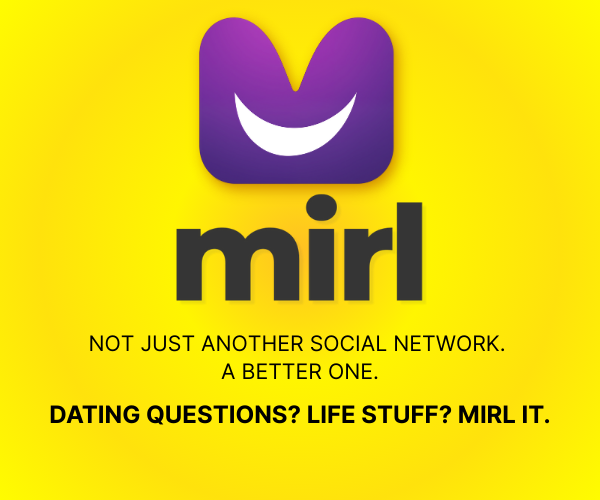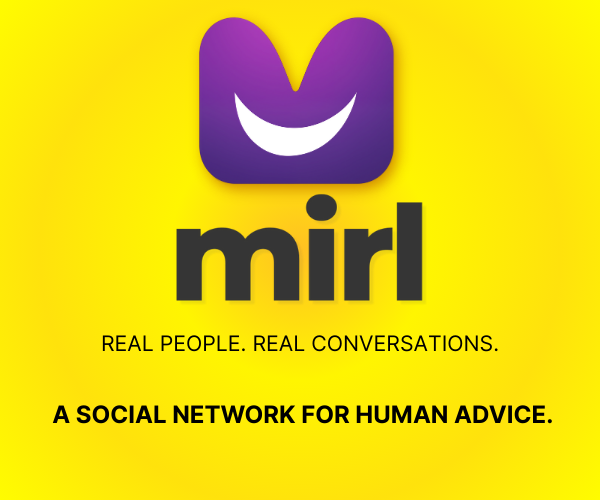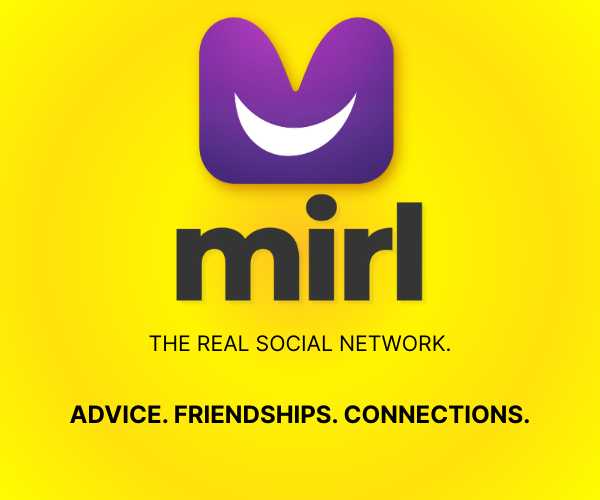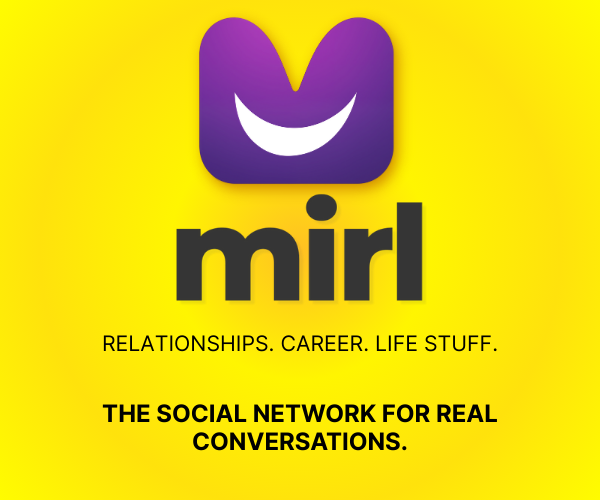Second Love Theory: 43 Signs & Truths About the Wild Love that Hurts & Heals

If it feels like emotional chaos and spiritual homework all at once, you’re probably here. The second love theory isn’t just love. It’s transformation.
If your For You page is half breakup memes and half “second love theory” TikToks, pull up a chair. We need to talk.
See, there’s this theory blowing up online (and secretly, in therapy sessions too): The idea that we fall in love three major times in our lives, and the second one? That’s the spicy one. The wild one. The love that makes you feel like you’re either starring in a music video or spiraling into an existential crisis. Sometimes both. In the same week.
You’re not broken. You’re not dramatic. You’re just smack in the middle of your second love.
And if you’ve been wondering why it feels like both a fairy tale and a fire drill, psychology’s got answers. Real ones. Let’s break it down.
What Is the Second Love Theory?
The Second Love Theory is part of a broader framework called the “Three Loves Theory,” which suggests that most people fall in love three times in their life, and each one serves a different purpose.
[Read: Three Loves Theory: What It Means & the HUGE Lessons They Teach You]
The First Love is often idealistic and fairytale-like. It’s the kind you see in teen dramas and first-date butterflies. It teaches us what infatuation feels like and what we think love should be.
The Second Love is the intense, messy, transformative one. This is where you confront the darker sides of love, and yourself. It’s passionate and consuming, but also confusing, inconsistent, and full of tough lessons. It teaches us what love is not, and often, what parts of us still need healing.
The Third Love is calm and grounding. It feels easy, not because it’s boring, but because it’s real. This love doesn’t complete you; it meets you.
The second love is usually the most emotionally chaotic. Why? Because it mirrors all the unresolved baggage we didn’t even know we were carrying. It shows us the cracks in our communication, our boundaries, our self-esteem.
And while it can feel like the most painful one, understanding the second love theory is also the most important for personal growth.
[Read: Why Does Love Hurt? 31 Things WE Do That Hurts & Secrets to Ease the Pain]
But what if you’ve been in more (or fewer) than three relationships?
Don’t worry, the second love theory isn’t a strict rulebook. It’s more of a lens to help make sense of the different emotional experiences we go through in love.
Some people might experience their “second love” on their fifth relationship. Others might go through all three types in the same person, especially in long-term partnerships where people evolve together.
And some folks meet their first and only love, and build something healthy and whole right from the start. It doesn’t make them any less wise or emotionally evolved. The number of loves isn’t what counts, it’s the kind of growth each love sparks within you.
[Read: 20 Types of Lovers and Relationships You’ll Come Across in the Dating World]
The “second love” is more of a phase than a person. If you’ve ever had a relationship that felt like it tore you down and built you up all at once, made you question everything but ultimately taught you something deep about who you are, that was your second love.
So even if you’ve loved once, or a dozen times, the second love theory might still hold a mirror up to one of those chapters. And if it resonates, well, it’s because love isn’t linear, it’s personal, unpredictable, and sometimes, a little chaotic.
Why Love #2 Hits Different
There’s a reason this love feels like an emotional rollercoaster, and it’s not just because you both love hard and fight harder. Second loves often stir up our deepest attachment wounds, and then throw glitter on them.
Here’s how it works:
When we experience intense highs and lows with someone, our brain releases dopamine (reward chemical), cortisol (stress hormone), and oxytocin (bonding hormone) in unpredictable patterns. That unpredictability? It’s addictive. Literally.
This creates a cycle of emotional highs and withdrawals that mimic actual addiction.
📚 Source: Fisher, Aron, & Brown (2005), Romantic Love: An fMRI Study of a Neural Mechanism for Mate Choice
Add to that the reality that most second loves arrive when we’re still figuring out who we are, and who we are in relationships, and it becomes a perfect storm.
It’s often where anxious and avoidant attachment styles collide, dance, crash, and then cling again.
[Read: Avoidant Attachment Style: The Types, 32 Symptoms & How to Love One]
📚 Source: Hazan & Shaver (1987) Attachment theory research
So no, it’s not just you. That constant craving for clarity, reassurance, or just peace with this person? That’s your nervous system trying to find safety in a relationship that keeps moving the goalposts.
The good news? Surviving your second love can be like graduating from emotional bootcamp. You learn what you need, what you can’t tolerate, and how much you’re willing to compromise before losing yourself.
The Unmistakable Signs You’re in Second-Love Territory
These aren’t just any relationship red flags. They’re emotional plot twists that define your second-love chapter.
[Read: 45 Big Relationship Red Flags Most Couples Completely Ignore Early in Love]
1. You break up and get back together like it’s a season finale cliffhanger
It’s not just one breakup. It’s several. And every time you promise yourself it’s the last time, until you’re back in each other’s arms a week later.
This kind of push-pull pattern is common in second loves because you’re both trying to figure yourselves out, often at each other’s emotional expense. There’s passion, but there’s also instability, and it starts to feel like the drama is part of the connection.
[Read: Push and Pull Relationship: 32 Signs & Truths to Unravel Love’s Tug of War]
2. The highs feel like euphoria, and the lows feel like freefalling
There are moments where you look at them and think, “This is it. This is my person.”
And then there are moments where you’re crying on your bathroom floor, feeling like you don’t even recognize who you are anymore. That kind of intensity isn’t sustainable long-term, but it sure is intoxicating in the short term. And yes, it keeps you hooked.
3. You constantly feel like you’re trying to prove your worth
You give more, stretch further, and rationalize things you wouldn’t accept in any other situation, all just to keep the peace or hold their attention.
This love has you hustling for validation, not realizing that love you have to fight that hard to earn isn’t the kind that lasts.
4. You feel like you’re on an emotional treadmill
You’re putting in all this effort, running full-speed emotionally, but getting nowhere. It’s exhausting. You keep having the same arguments. You keep feeling the same insecurity. But nothing ever truly resolves.
[Read: Emotional Roller Coaster: The Signs, Causes & Ways to End this Relationship]
5. Your friends are over it, even if you’re not
They’ve heard every argument, every excuse, every reason you “just need to talk one more time.”
They’ve stopped offering advice and started just raising their eyebrows. That’s because people outside the intensity can see what you’re too close to admit: this might not be good for you.
6. You fantasize more about fixing the relationship than living it
You spend more time thinking about how things could be than enjoying how they actually are. You’re constantly mentally editing your love story, rewriting the ending, hoping for a plot twist that gives you peace and clarity. That’s a big sign you’re loving the potential, not the present.
7. The chemistry is undeniable, but confusing
You can’t explain it. The attraction is magnetic. The sex is probably amazing. You get goosebumps when they smile at you a certain way. But emotional safety? Stability? That part’s a bit… MIA.
8. You’re not sure who you are anymore
You used to be carefree, grounded, creative, whatever your thing was. Now, you’re mostly just trying to keep the relationship afloat.
You’ve stopped checking in with yourself because you’re too busy checking their mood. That identity erosion is one of the hardest parts of second love.
[Read: 19 Ways to Pull Back in a Relationship When You’re Giving Too Much]
9. You question if you’re being too much, or not enough
You overthink every reaction. You replay every disagreement. You toggle between “I need to be more chill” and “Why do I let them get away with this?” It’s emotional whiplash that leaves you unsure of your own instincts.
10. You can’t tell if they’re the love of your life, or your biggest distraction
On some days, they feel like home. On others, they feel like a detour. You swing between being deeply grateful for their presence and totally exhausted by it. And that emotional ping-pong is the signature move of second love.
11. You make excuses for their behavior constantly
Whether it’s to your friends, your mom, or just yourself in the mirror, you keep justifying things that really don’t sit right.
You explain away their moods, their inconsistencies, their disappearances. Deep down, you know you’re covering up the cracks.
12. You feel emotionally hungover after seeing them
After a date or a fight, you’re not glowing, you’re drained. Your body feels tense, your thoughts spiral, and your chest feels heavy. It’s like your nervous system can’t catch a break, and love shouldn’t feel like recovery mode.
[Read: Emotionally Exhausted? How It Feels, 41 Signs & Reasons Why You’re Drained]
One like from someone new and your mind’s already built a betrayal narrative. You scroll, stalk, compare, and spiral, because your sense of safety in the relationship is shaky, so you look for signs of danger everywhere.
14. They challenge your sense of reality
Not in the “wow, this love is magical” way, but in the “did that even happen the way I remember it?” way. Gaslighting doesn’t have to be intentional to be harmful.
If you feel like your memories or feelings are constantly being questioned, it chips away at your sense of truth.
15. You’ve had to dim parts of yourself to keep the peace
Maybe you’ve stopped bringing up your dreams, your accomplishments, or your boundaries. Maybe you’ve learned which topics trigger fights, so you just stay quiet. This version of love demands you shrink to fit it.
16. The idea of losing them scares you more than being unhappy with them
You’ve convinced yourself that being with them, even when it’s rough, is better than being alone. That fear of loss keeps you tethered, even when your gut is screaming for space.
[Read: Fear of Losing Someone You Love: Why You Feel It & Ways to Get Over It]
17. You can’t bring yourself to delete the “receipts”
Screenshots. Notes app rants. Voicemails. DMs. You’ve got a digital archive of every time they hurt you, just in case you need to remind yourself that you’re not imagining things.
18. You’re afraid to ask for what you really need
Whether it’s exclusivity, more communication, or just a damn “good morning” text, you hesitate to ask because you fear you’ll sound needy or push them away. But love isn’t supposed to punish you for having needs.
19. You second-guess your own emotional barometer
You cry and wonder if you’re being dramatic. You get angry and then feel guilty. Your emotional compass is spinning because you’ve been in survival mode so long, you can’t tell what’s fair anymore.
20. Deep down, you know this relationship is here to teach you, not to stay forever
Even as you love them deeply, a part of you whispers that this isn’t forever. This love is intense because it’s meant to show you something important about yourself. It’s your soul’s crash course in self-worth, boundaries, and clarity.
[Read: 69 Signs Your Relationship is Over or On the Verge of Ending for Good]
The Second Love Theory and the Lessons It Will Teach You
Second loves aren’t gentle. They don’t tiptoe in quietly. They kick the door down, throw your heart in a blender, and then whisper, “This is for your growth.” Rude? Yes. Necessary? Also yes.
Let’s talk about what your second love is really trying to teach you, because once you understand the curriculum, it gets a whole lot easier to stop repeating the same emotional patterns.
1. You learn how to set boundaries (because you realize what happens when you don’t)
Second loves often leave you boundary-less. You forgive too much. You compromise on your values. You stretch beyond your emotional bandwidth. And eventually, you snap. That moment teaches you what a boundary should have been, and how not having one left you exposed.
You start to recognize that boundaries aren’t walls to keep love out, they’re fences to keep your sanity in.
[Read: Boundaries in a Relationship: 43 Healthy Dating Rules You MUST Set Early On]
2. You learn the difference between attachment and connection
This love feels magnetic, like fate. But after a while, you realize you’re not connected, you’re attached. And not in a cute, cozy way. It’s the kind of attachment that keeps you on edge, always wondering what’s next, always seeking reassurance.
That distinction becomes crystal clear once you meet someone who truly connects with you, calmly, securely, and without games.
3. You learn how to communicate your needs (and what happens when they’re ignored)
In second loves, you either say what you need and get dismissed, or you hold it in and end up resentful.
Either way, you walk away understanding that your needs are valid, and that anyone who consistently makes you feel like they’re not is waving a red flag, not offering you love.
4. You learn that self-worth isn’t earned through someone else’s affection
You could be loved deeply by someone and still feel hollow, especially if that love is inconsistent. Second loves often make you chase, and in doing so, they trick you into thinking your worth is measured by someone else’s attention span. It’s not.
That gut-punch realization is what drives you back to yourself, and that’s where real self-worth begins.
[Read: High Self-Esteem: 33 Low Signs, What Hurts Self-Worth & Secrets to Pump It]
5. You learn when to walk away (and how powerful that moment is)
There’s a moment, quiet, clear, unforgettable, when you realize you can’t do it anymore. Not because you don’t love them, but because you finally love yourself more.
That decision doesn’t always come with applause or closure. Sometimes it just comes with peace. But it’s one of the most powerful emotional turning points you’ll ever live through.
How to Survive Your Second Love, and Grow From It
Second loves can leave you feeling like you’ve been through a hurricane with no warning siren. It’s hard to know which way is up when the person you love most is also the one causing you the most emotional confusion.
But healing from a second love doesn’t mean erasing the past. It means learning how to stand on steadier ground moving forward. Whether you’re in the middle of it or still sifting through the pieces, here’s how to find your balance again, and maybe even walk away stronger than before.
1. Stop trying to make it make sense
Second loves rarely come with clarity. You’ll waste precious energy trying to find the “why” behind every emotional twist.
Instead, start looking for what you need, not just what the relationship needs. Confusion fades when you focus on yourself.
2. Regulate your nervous system
The emotional chaos can leave you in survival mode, jumpy, anxious, overthinking everything.
Practices like journaling, long walks, talking to a friend who doesn’t hype your drama, and grounding techniques (like deep breathing or naming five things you can see around you) can help bring your body back to a baseline.
📚 Source: Porges, S. W. (2007). The polyvagal perspective
3. Rewrite the narrative in your head
Your brain is constantly trying to make meaning out of experiences. If you keep telling yourself, “I was too needy” or “I ruined it,” you’re reinforcing shame.
Instead, try: “I showed up with love and learned what I needed to learn.” That’s a softer, more empowering truth.
4. Don’t isolate
Second loves have a way of making you feel like no one understands what you’re going through. But heartbreak isn’t a private club. The more you talk about it, honestly, the more you realize you’re not alone. Connection is medicine.
5. Start rebuilding your identity
Maybe you lost your confidence. Or your hobbies. Or the version of you that laughed louder and worried less.
Rebuilding isn’t about going back to who you were, it’s about reconnecting with what lights you up now. Start with small joys and rebuild your self-trust brick by brick.
6. Let it end, even if it’s not perfect
Second loves rarely come with clean endings. Sometimes you don’t get closure. Sometimes you never get that final conversation. But healing doesn’t wait for a neat goodbye. It starts when you stop checking their page and start checking in with yourself.
[Read: 19 Steps & Must-Knows to Fall Out of Love When You See No Happy Future]
Second Love Theory TikTok Myths, Busted
If you’ve seen #SecondLoveTheory on TikTok, you’ve probably heard the dramatic takes. Some of them are relatable. Others? A little… off.
So let’s clear up the emotional clutter about the second love theory and bust a few of those viral myths wide open.
1. “Your second love will destroy you.”
Okay, slow down Shakespeare. Yes, second loves can hurt, but they’re not inherently toxic. A second love challenges you, stretches you, exposes your emotional weak spots, but it’s not doomed to destroy you unless you ignore all the lessons it’s trying to teach.
2. “The second love is always a narcissist.”
Yikes. This one really took off, but it’s not psychologically accurate. Not everyone who hurts you is a narcissist. Some people are just emotionally immature.
Second loves feel intense not because the person is a villain, but because they trigger unhealed parts of you. Narcissistic behavior exists, but throwing the label around diminishes real cases.
3. “You only get three loves in life.”
The second love theory is symbolic, not scientific. It’s about emotional archetypes, not literal relationship counts. You might go through several relationships that echo second-love themes.
You might find your “third love” after two or after ten. It’s not about quantity, it’s about the kind of emotional growth each love pushes you through.
4. “You have to suffer before you find your real love.”
Nope. Growth doesn’t require pain, it just often comes with it. But suffering isn’t a badge of honor. You can outgrow patterns, find healing, and build beautiful relationships without burning your heart to the ground first.
[Read: Unrequited Love: 58 Signs, Types & Steps to Get Out of Unreciprocated Love]
Signs You’re Ready for That Calm, Secure Third Love
After the whirlwind of a second love, it’s normal to feel a little bruised, a little wiser, and very skeptical. But here’s the thing: emotional growth doesn’t just prepare you for better love. It helps you recognize it.
That calm, steady, third-love energy doesn’t look like fireworks, it looks like consistency, safety, and being able to exhale. So if you’ve been wondering whether you’re really ready for that kind of love… these signs will help you know.
1. You crave peace more than passion
Not that passion isn’t great (it totally is), but now, you’re more attracted to people who feel grounding, not triggering. Drama no longer excites you, it exhausts you.
2. You don’t need a relationship to feel whole
You’ve stopped looking for someone to complete you. You want a partner, not a savior. Your life feels full on its own, and love is the bonus, not the bandaid.
3. You’re comfortable being vulnerable, but no longer perform for love
You can express your needs without fear of abandonment. You don’t shape-shift to be liked. You show up as your full self and trust that the right person will choose you because of it, not despite it.
[Read: Am I Ready For a Relationship? 63 Signs, Tips & How to Let Them Know]
4. You’ve let go of the need to win someone over
You’re no longer trying to prove you’re worthy of love. You’ve retired from chasing. Once you’ve understood the second love theory, you know that healthy love doesn’t need to be convinced, it just meets you where you are.
5. You prioritize emotional safety over chemistry
Chemistry is still important, but it’s not everything anymore. You pay attention to how someone makes you feel, not just in the bedroom, but in the silences, the small conflicts, the everyday messiness. That’s where real love lives.
6. You don’t confuse intensity with intimacy
You’ve seen how easy it is to mistake chaos for depth. Now, you look for someone who asks questions, remembers details, and shows up consistently. That’s intimacy.
7. You trust yourself to walk away if it isn’t right
The biggest green flag? You don’t abandon yourself anymore. If someone’s energy feels off, if your gut says no, if your peace starts slipping, you know you can walk away, even if you still love them.
8. You’re not rushing, because you know what you want
You’ve outgrown urgency. You know that fast love can fizzle, and you’re finally okay with taking your time. Because now, you know what love should feel like, and you’re willing to wait for it.
[Read: 25 Signs You’re Going from Dating to a Relationship & Steps to Do It Right]
When you’ve done the work, the right love won’t feel like work
Your third love doesn’t demand that you shrink, suffer, or prove anything. It sees you. It holds you. It doesn’t rush your healing or invalidate your past. It simply meets you where you are, and patiently grows with you.
This love isn’t about adrenaline or chaos. It’s about choosing someone, and being chosen, every single day, without needing to lose yourself in the process. There’s trust, there’s safety, there’s emotional oxygen. And you finally get to breathe.
You’ll know you’ve stepped into this kind of love when it feels like alignment, not adjustment. When your nervous system relaxes instead of bracing for impact. When being with them feels like coming home to yourself.
[Read: Exclusive Relationship: 36 Signs You’re Ready For It or In One Already]
Because here’s the truth about the second love theory: your second love cracked you open so you could expand. So you could evolve. So you’d know how to recognize love that doesn’t burn, but warms. Not as who you were, but as who you’ve become. And who you’re still becoming.



















